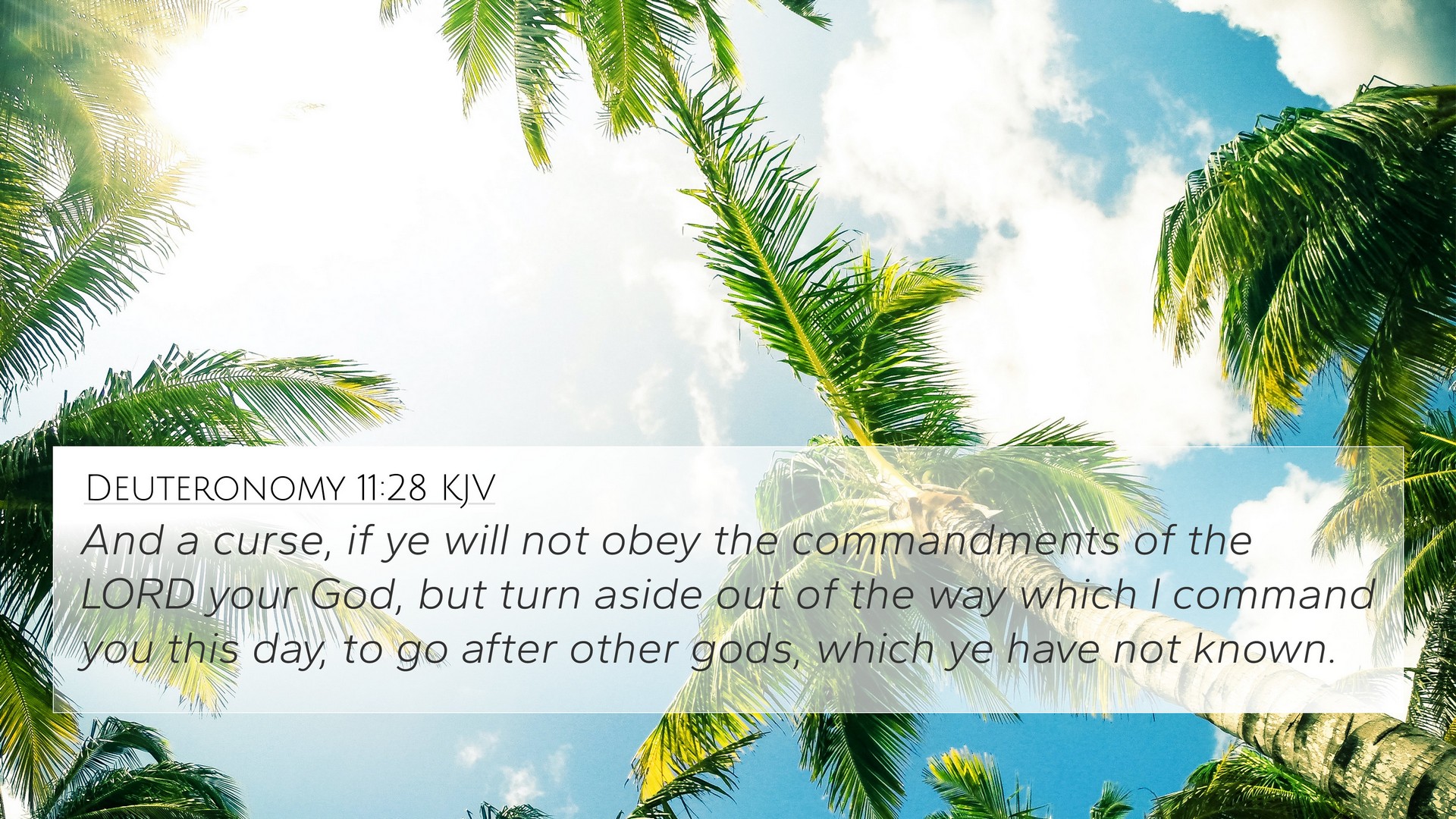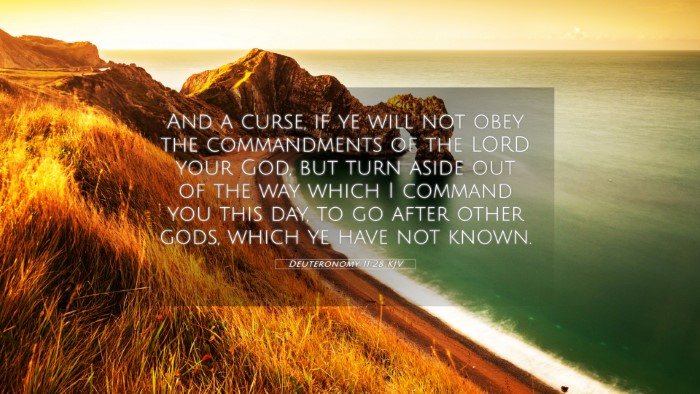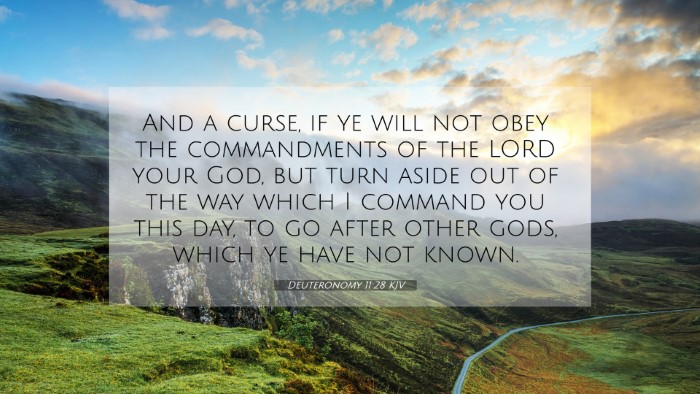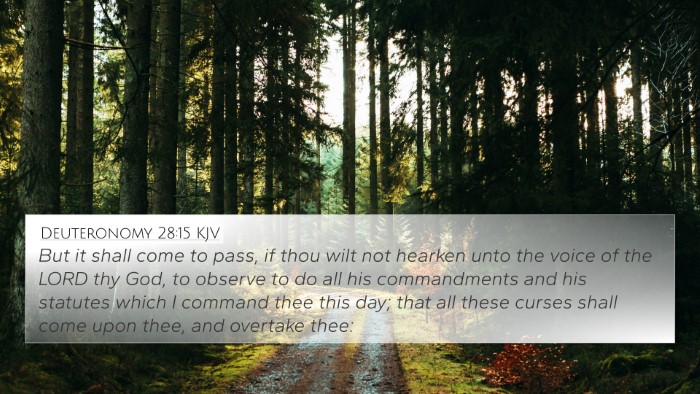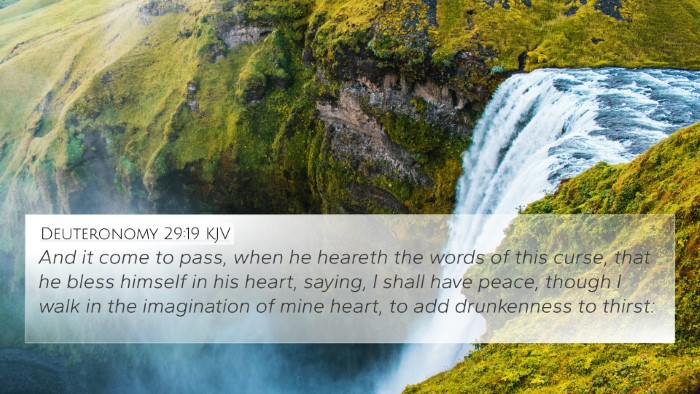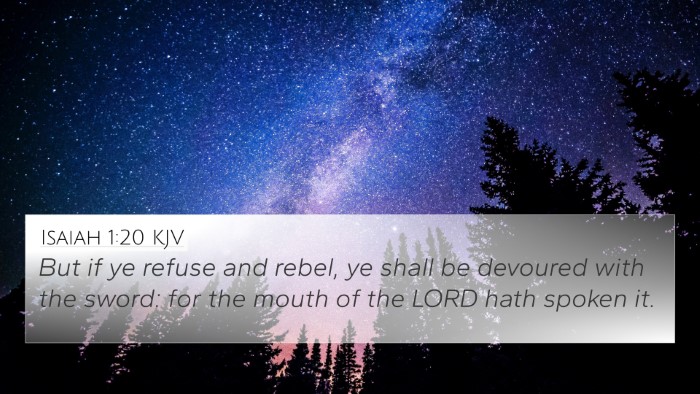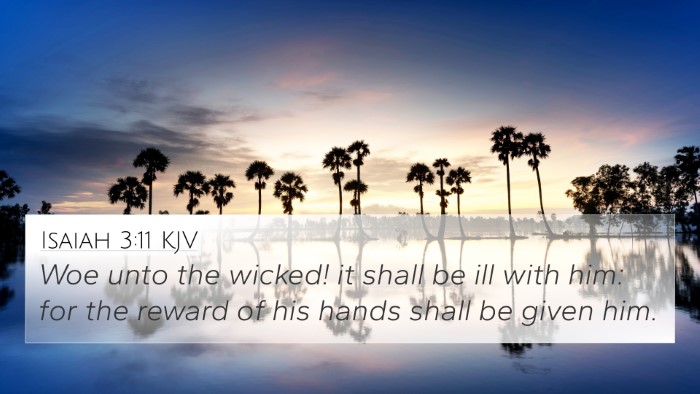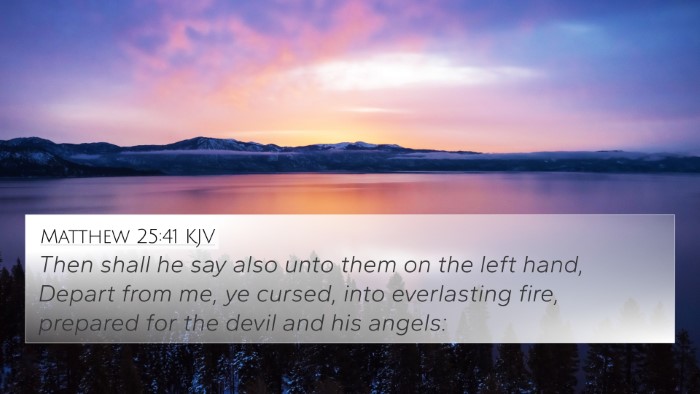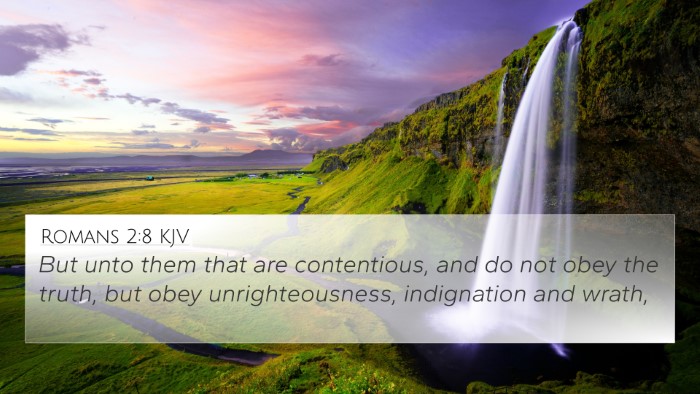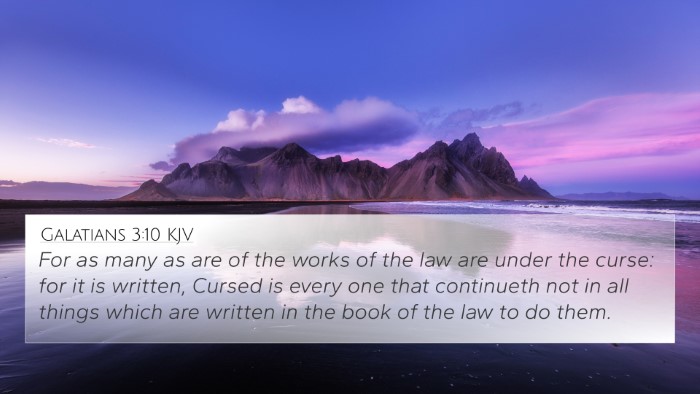Understanding Deuteronomy 11:28
Bible Verse: "And a curse, if you will not obey the commandments of the Lord your God, but turn aside out of the way which I command you this day, to go after other gods, which you have not known."
Verse Meaning and Commentary Insights
This verse presents a solemn warning from God through Moses. It encapsulates the choice set before the Israelites: a path of blessing through obedience or a path of cursing through disobedience. Let’s delve into the combined insights from renowned public domain commentaries like those of Matthew Henry, Albert Barnes, and Adam Clarke.
Divine Choices and Consequences
Matthew Henry: Henry emphasizes that the blessings and curses represent the overarching theme of covenant between God and His people. This highlights God’s desire for His people to adhere to His commandments, ensuring their longevity and prosperity in the Promised Land.
Albert Barnes: Barnes notes that the invocation of blessings and curses serves to underscore the seriousness of obeying God. He suggests that the turn to other gods represents unfaithfulness and a departure from the commitment to Yahweh.
Adam Clarke: Clarke elaborates on the notion of 'other gods,' indicating that Israel should remain vigilant against idolatry and the influences of surrounding nations which may lead them away from true worship. He stresses the importance of complete allegiance to the one true God.
Thematic Connections
This verse draws parallels with several other biblical passages that emphasize the importance of obedience and the consequences of idolatry:
- Joshua 24:15: “Choose you this day whom ye will serve...” - A call similar to Moses urging choice between fidelity to God or other deities.
- 1 Kings 18:21: “How long will you falter between two opinions?” - A prophetic challenge against misplaced loyalties.
- Malachi 3:10: “Bring the whole tithe into the storehouse...” - An indication that faithfulness brings blessings.
- James 1:12: “Blessed is the man that endureth temptation...” - Aligning obedience with divine blessings.
- Galatians 6:7: “For whatsoever a man soweth, that shall he also reap.” - Echoing the principle of consequences tied to actions.
- Exodus 20:3: “Thou shalt have no other gods before me.” - Direct command reinforcing exclusivity in worship.
- Deuteronomy 30:19-20: “I have set before you life and death, blessing and cursing...” - A similar choice emphasizing the importance of obedience.
Cross-Referencing and Biblical Context
Understanding Deuteronomy 11:28 deepens through cross-referencing with other verses. These connections highlight God's unwavering standards for His people and reinforce the gravity of their commitments to Him:
- Exodus 23:24: Warns against following other gods.
- Isaiah 45:21: Proclaims God as the only Savior.
- Romans 1:25: Discusses exchanging the truth for a lie, reflecting on idolatry.
- Revelation 22:14: Affirms that obedience leads to eternal life.
Tools for Understanding
For anyone exploring the richness of Scripture, utilizing tools for Bible cross-referencing is invaluable. These tools enable deeper insights into Bible verse cross-references and allow a reader to:
- Analyze connections between Bible verses: Helps identify recurring themes and teachings across different books.
- Utilize a Bible concordance: Assists in locating specific verses and their contexts quickly.
- Explore cross-reference Bible study methods: Facilitates comparative studies between testaments and themes.
- Reference guide for sermon preparation: Helps find related scriptures for effective biblical teaching.
Conclusion
Deuteronomy 11:28 serves as a critical reminder of the choices before believers—one of obedience leading to blessings versus disobedience leading to curses. Through a careful comparative Bible verse analysis, one finds that the themes of faithfulness, obedience, and the consequences of idolatry resonate throughout Scripture, enriching the understanding of God’s Word.
This verse, in conjunction with its numerous cross-references, provides a robust framework for reflecting on one’s walk with God, ensuring that the heart remains steadfast in its allegiance to Him.
